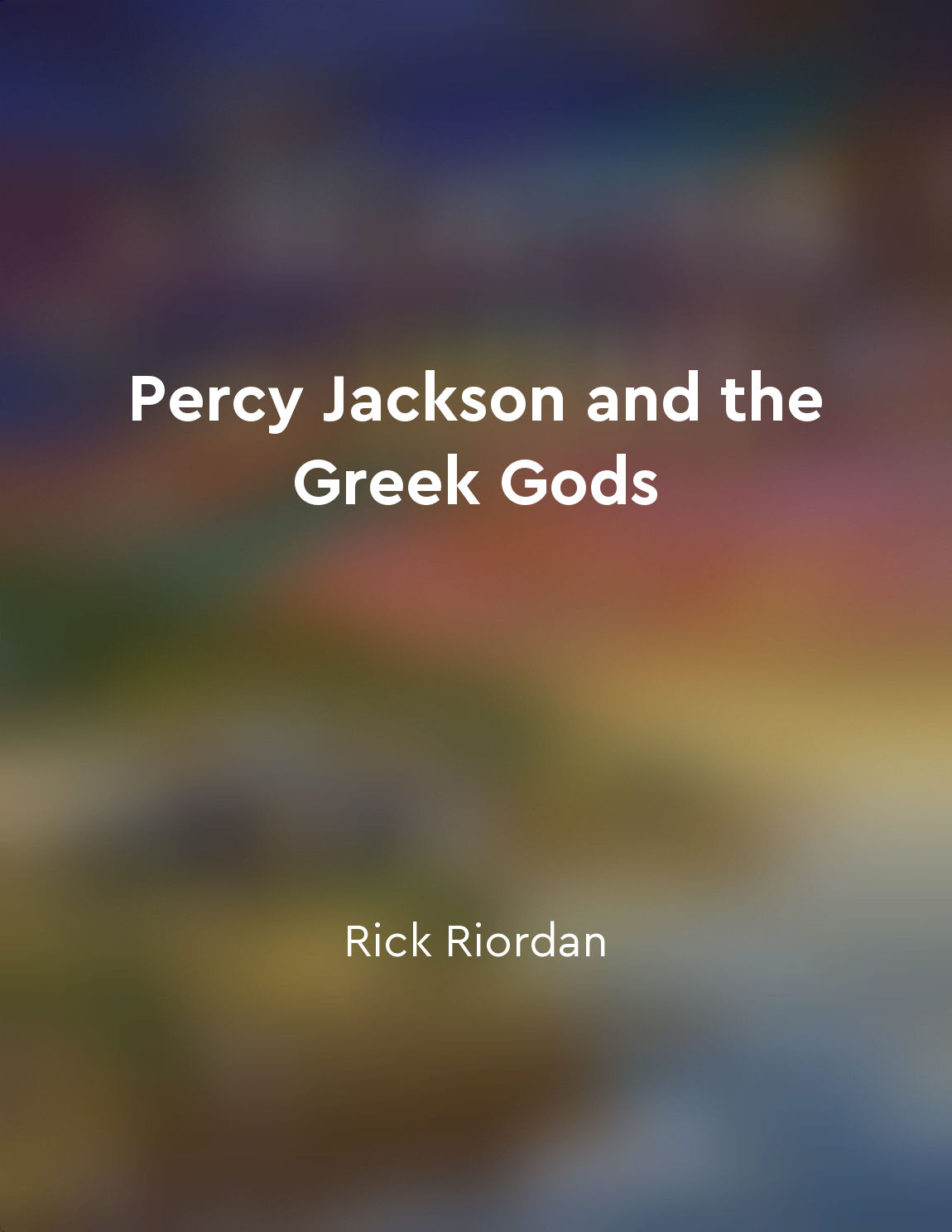Dionysus is the god of wine and revelry from "summary" of Percy Jackson and the Greek Gods by Rick Riordan
Dionysus, the son of Zeus and a mortal woman named Semele, is one of the most intriguing figures in Greek mythology. Born from the thigh of Zeus after his mother died, Dionysus was a unique and unconventional god right from the start. He is often associated with wine, parties, and celebration, embodying the spirit of revelry and excess. Dionysus is not just a god of wine, but also of fertility and ecstasy. His followers, known as maenads or bacchantes, would engage in wild and uninhibited rituals in his honor. These rituals often involved drinking copious amounts of wine, dancing wildly, and even tearing animals apart with their bare hands. Dionysus himself was known to be a liberator, freeing people from their inhibitions and societal norms through his influence. Despite his association with parties and revelry, Dionysus was also a complex and multifaceted deity. He was a patron of the arts, particularly theater, and his festivals were often accompanied by performances of plays and poetry. Dionysus was also a symbol of transformation and renewal, as wine itself is a product of fermentation and change. In some versions of his myth, Dionysus was portrayed as a wandering god, traveling from place to place to spread his teachings and revelry. This aspect of his character reflects the unpredictable and ever-changing nature of wine itself, which can bring both joy and sorrow to those who partake in it.- Dionysus embodies the dual nature of wine – it can bring people together in celebration and joy, but it can also lead to excess and chaos if not respected. As a god, Dionysus represents the intoxicating power of wine and the uninhibited freedom that comes with letting go of one's inhibitions. He is a reminder that life is meant to be enjoyed and celebrated, and that sometimes, it's okay to let loose and embrace the spirit of revelry.
Similar Posts
The hero's journey is a quest for personal growth and enlightenment
The hero's journey, as discussed in the book 'The Power of Myth', is a timeless narrative structure that transcends cultural bo...
Absurd man embraces uncertainty of existence
The Absurd man is someone who is fully aware of the inherent lack of meaning in the universe. He recognizes the futility of see...
Separation, initiation, and return are key stages
The hero's journey is a universal narrative pattern that can be found in myths and stories from cultures around the world. This...
Socrates represents the detrimental effects of excessive rationality on art
In the realm of art, the figure of Socrates emerges as a symbol of the dangers inherent in an overemphasis on rationality. Socr...
Journey to the Land of the Dead
In my travels, I found myself in the dark realm of the dead, a place where shadows roamed and the air was heavy with the scent ...
The small citystates of Greece were home to extraordinary individuals
The small citystates of Greece, though lacking the grandeur of empires like Egypt or Persia, were nonetheless bursting with a v...
Trials of the hero
The hero faces trials, both physical and mental, on his journey back to his homeland. These challenges test his strength, coura...
Reunion of Odysseus and Penelope
After twenty years of wandering and facing countless challenges, Odysseus finally returned to his homeland of Ithaca. Disguised...


